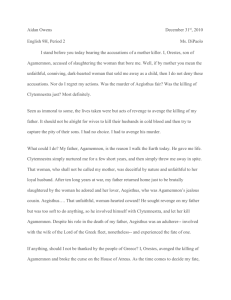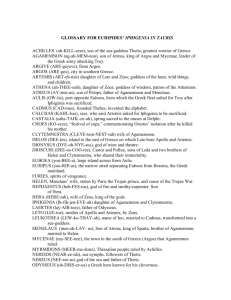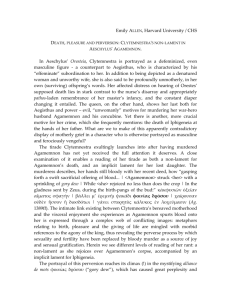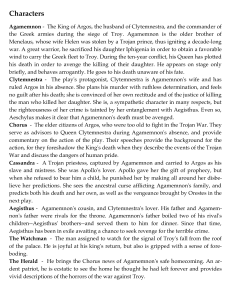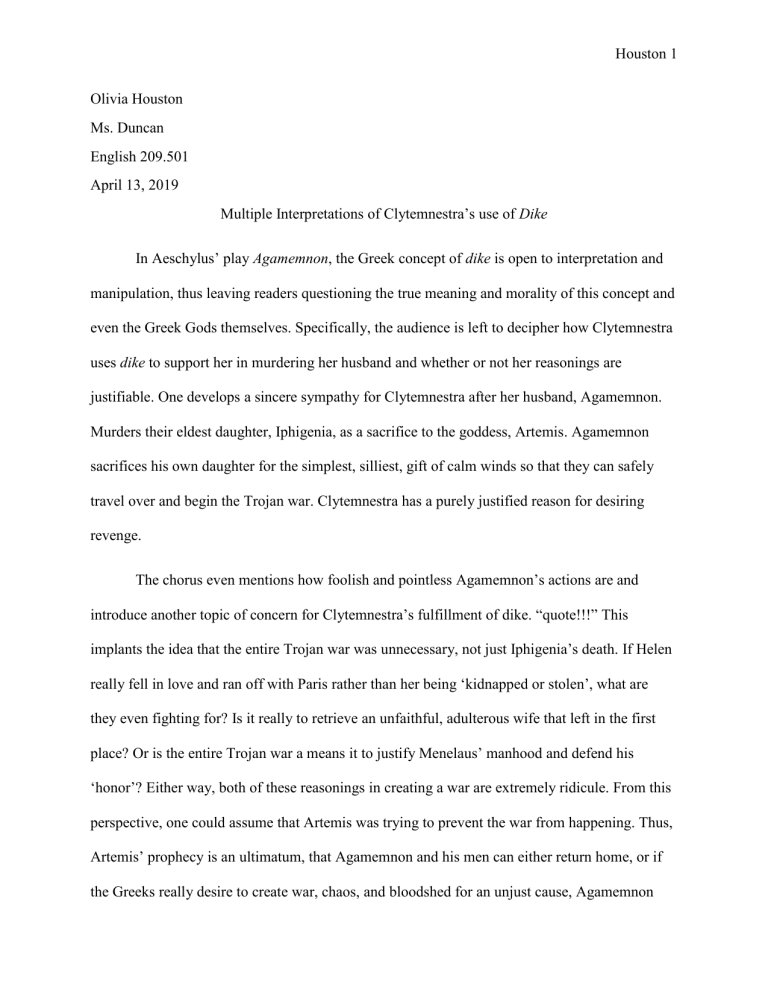
Houston 1 Olivia Houston Ms. Duncan English 209.501 April 13, 2019 Multiple Interpretations of Clytemnestra’s use of Dike In Aeschylus’ play Agamemnon, the Greek concept of dike is open to interpretation and manipulation, thus leaving readers questioning the true meaning and morality of this concept and even the Greek Gods themselves. Specifically, the audience is left to decipher how Clytemnestra uses dike to support her in murdering her husband and whether or not her reasonings are justifiable. One develops a sincere sympathy for Clytemnestra after her husband, Agamemnon. Murders their eldest daughter, Iphigenia, as a sacrifice to the goddess, Artemis. Agamemnon sacrifices his own daughter for the simplest, silliest, gift of calm winds so that they can safely travel over and begin the Trojan war. Clytemnestra has a purely justified reason for desiring revenge. The chorus even mentions how foolish and pointless Agamemnon’s actions are and introduce another topic of concern for Clytemnestra’s fulfillment of dike. “quote!!!” This implants the idea that the entire Trojan war was unnecessary, not just Iphigenia’s death. If Helen really fell in love and ran off with Paris rather than her being ‘kidnapped or stolen’, what are they even fighting for? Is it really to retrieve an unfaithful, adulterous wife that left in the first place? Or is the entire Trojan war a means it to justify Menelaus’ manhood and defend his ‘honor’? Either way, both of these reasonings in creating a war are extremely ridicule. From this perspective, one could assume that Artemis was trying to prevent the war from happening. Thus, Artemis’ prophecy is an ultimatum, that Agamemnon and his men can either return home, or if the Greeks really desire to create war, chaos, and bloodshed for an unjust cause, Agamemnon Houston 2 must murder his own blood, his precious, eldest daughter, Iphigenia. Artemis uses this ultimatum in hopes to forestall bloodshed, chaos, and the millions of innocent lives lost in this absurd war. This view supports that Clytemnestra’s reasons for murdering her husband were justified, thus restoring proper order and balance, as well as quenching everyone’s thirst for revenge, including the gods.
